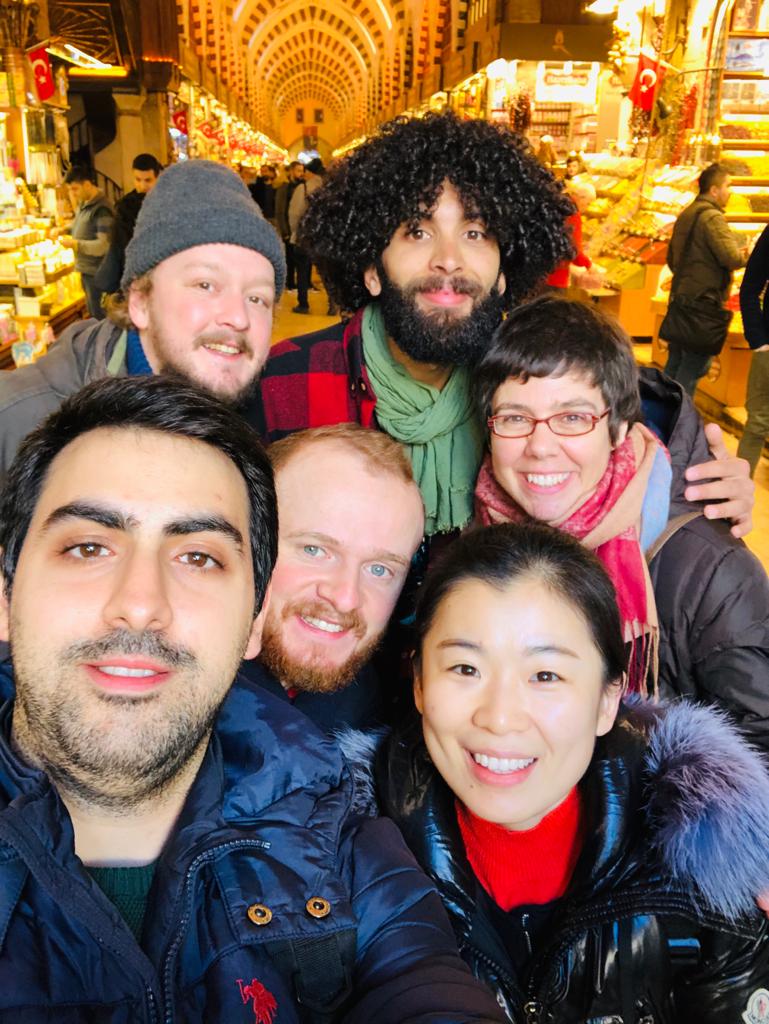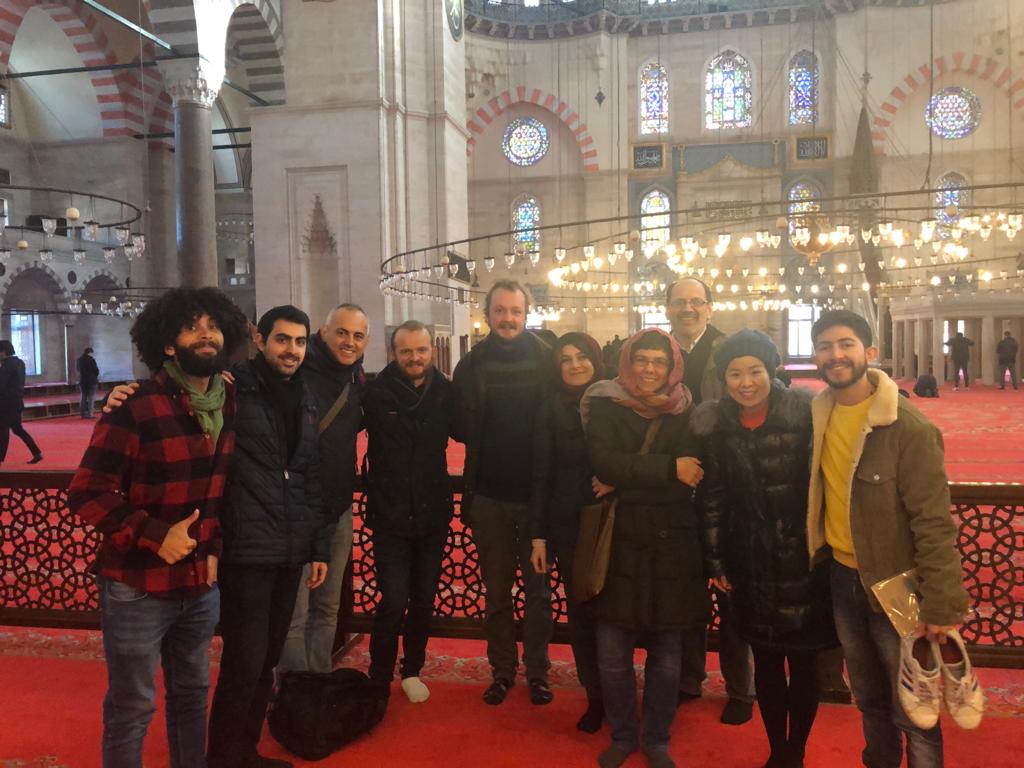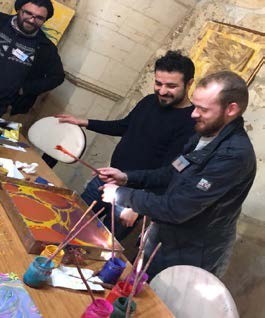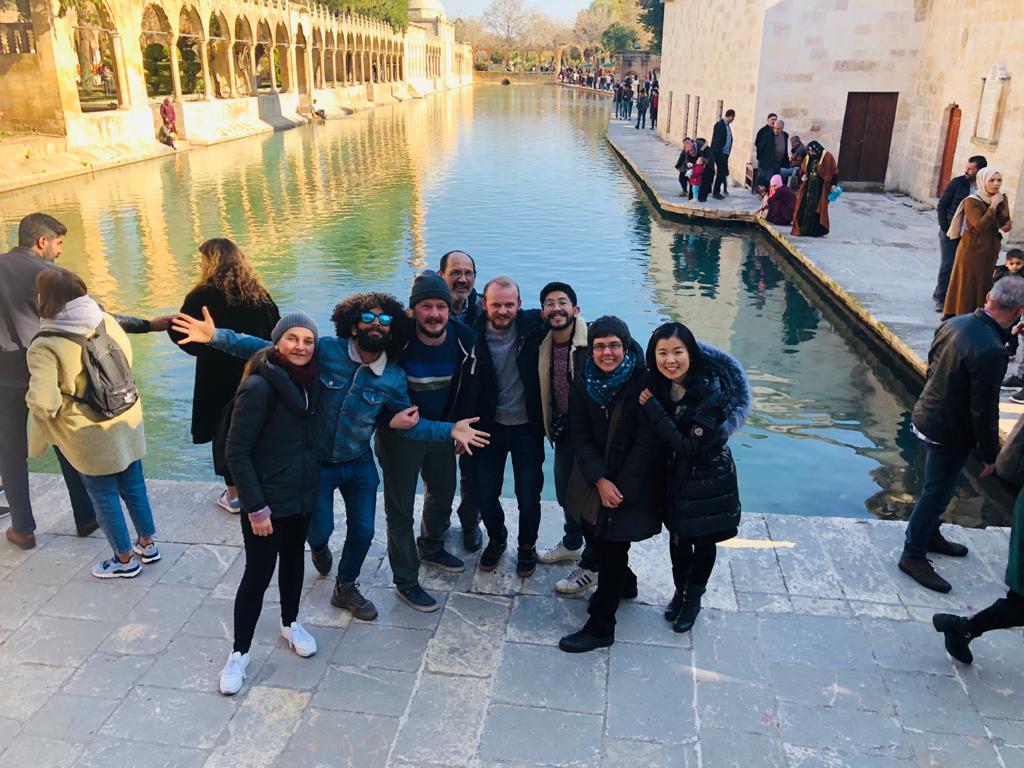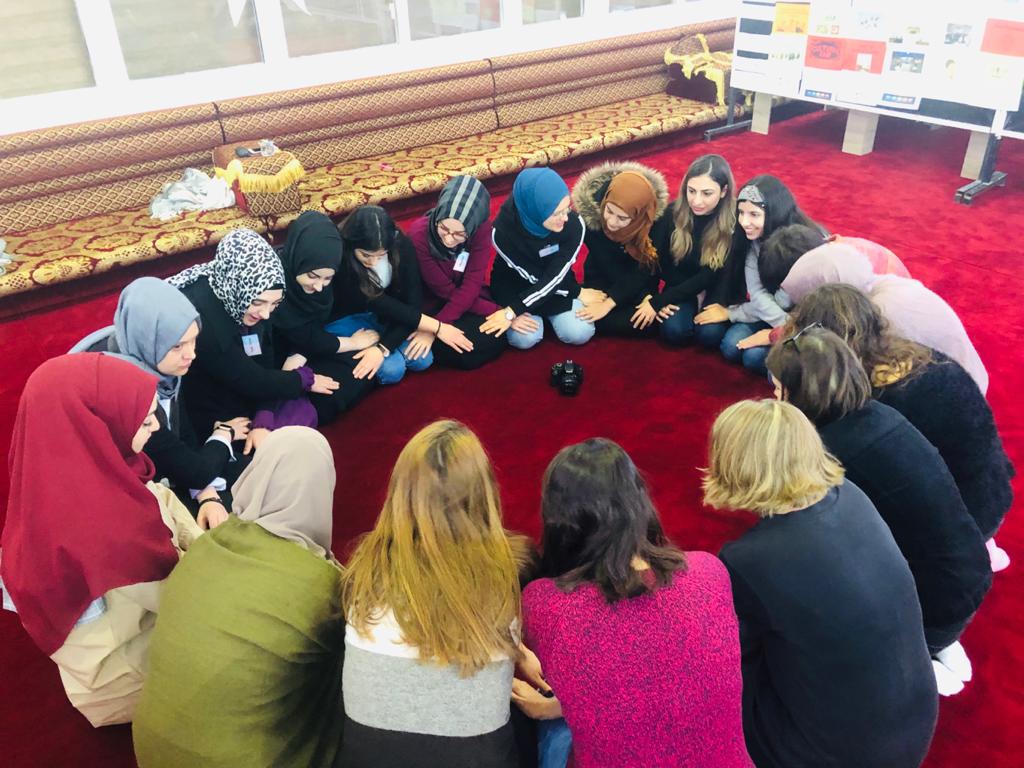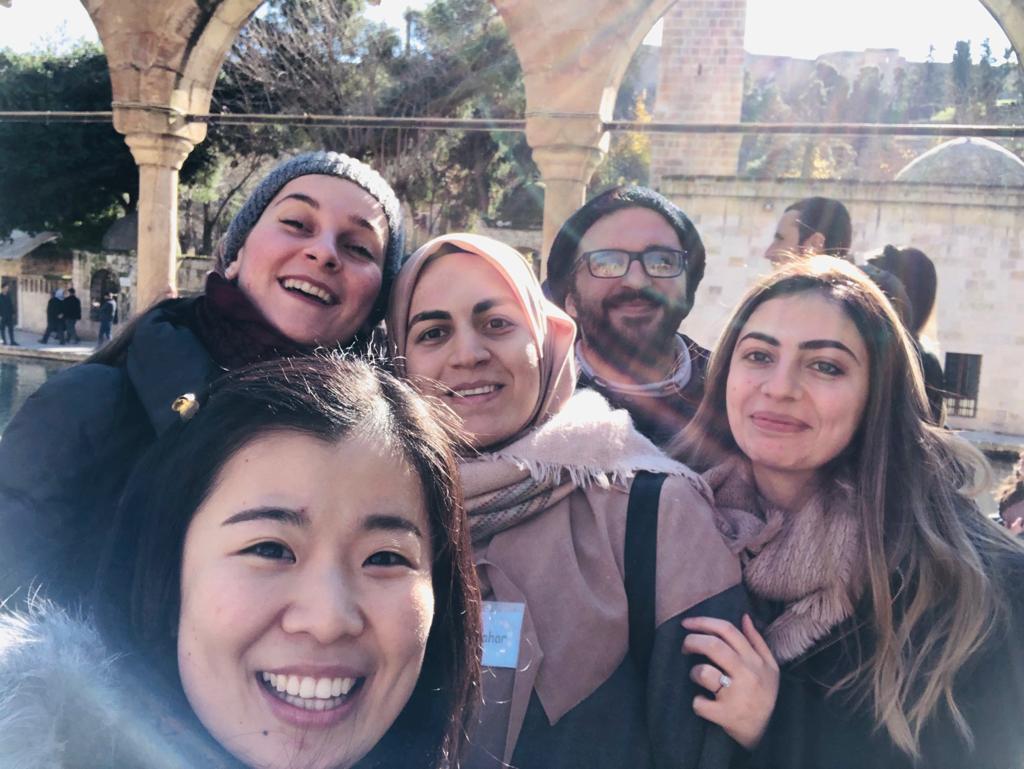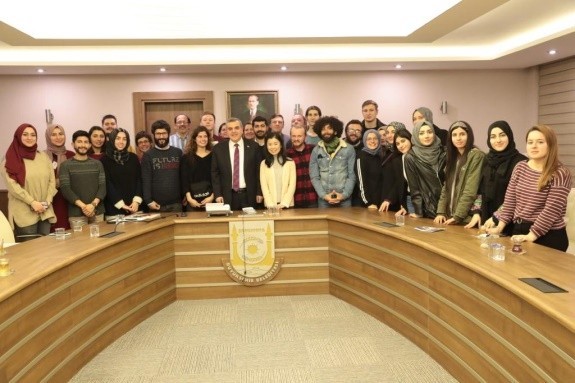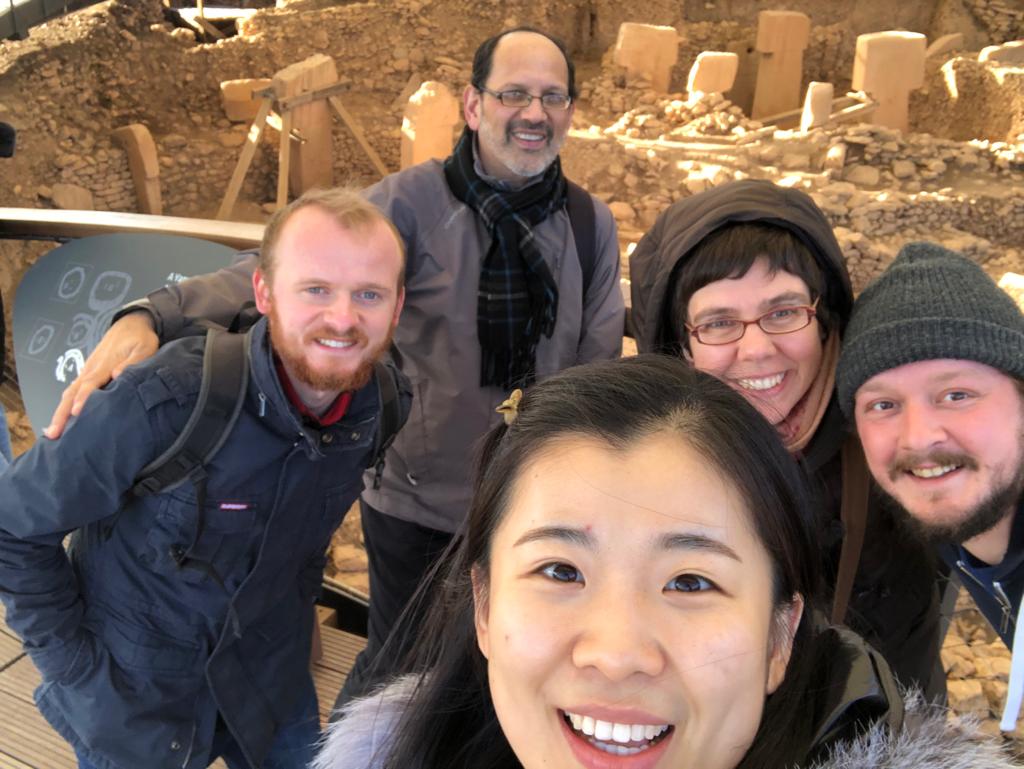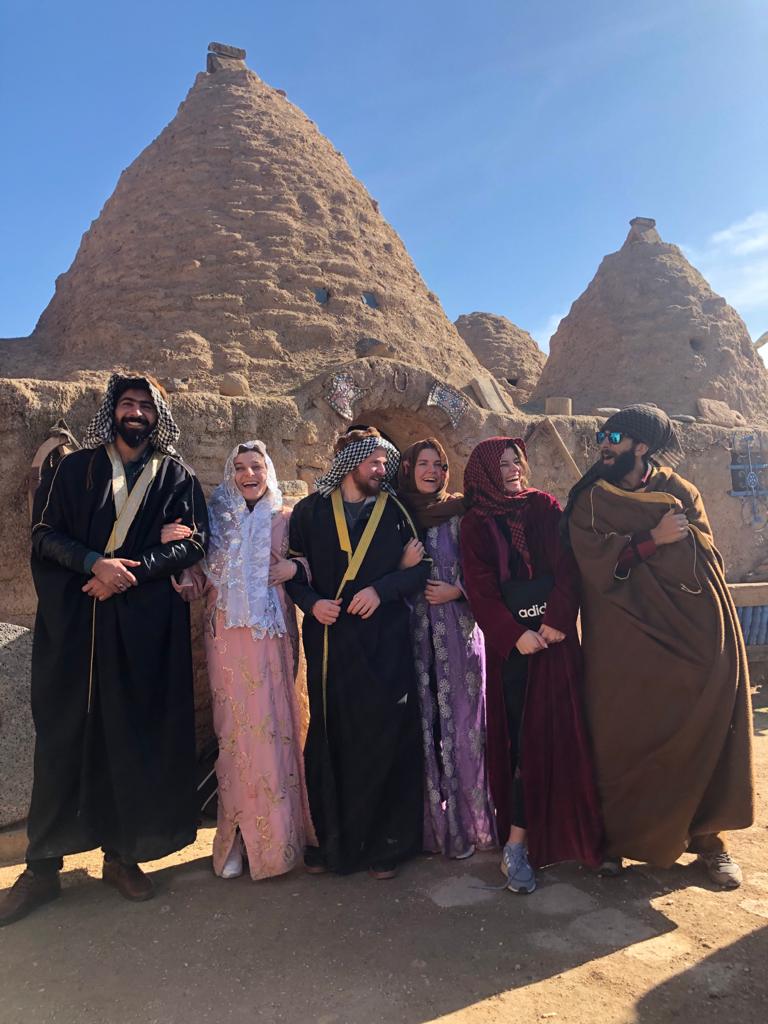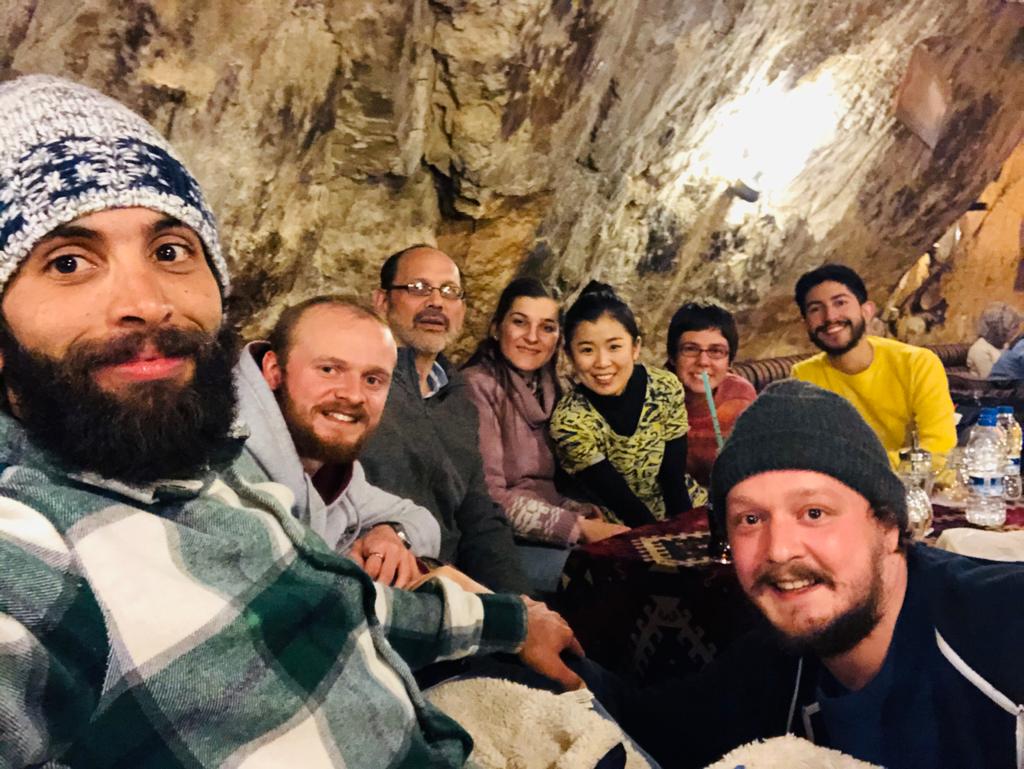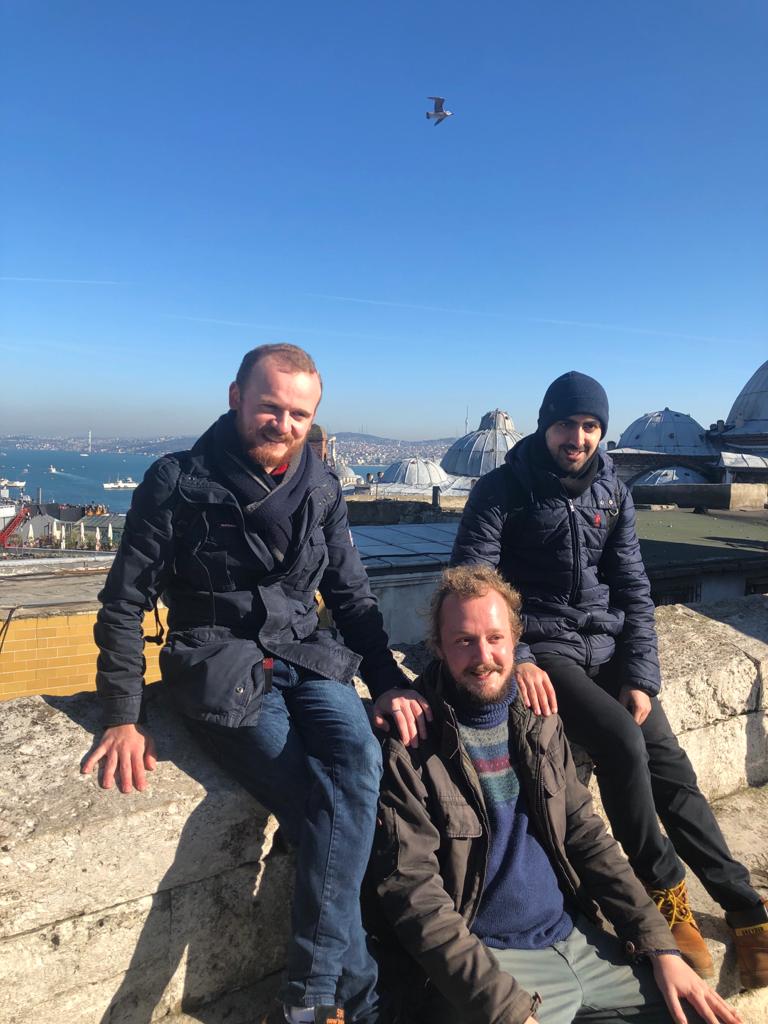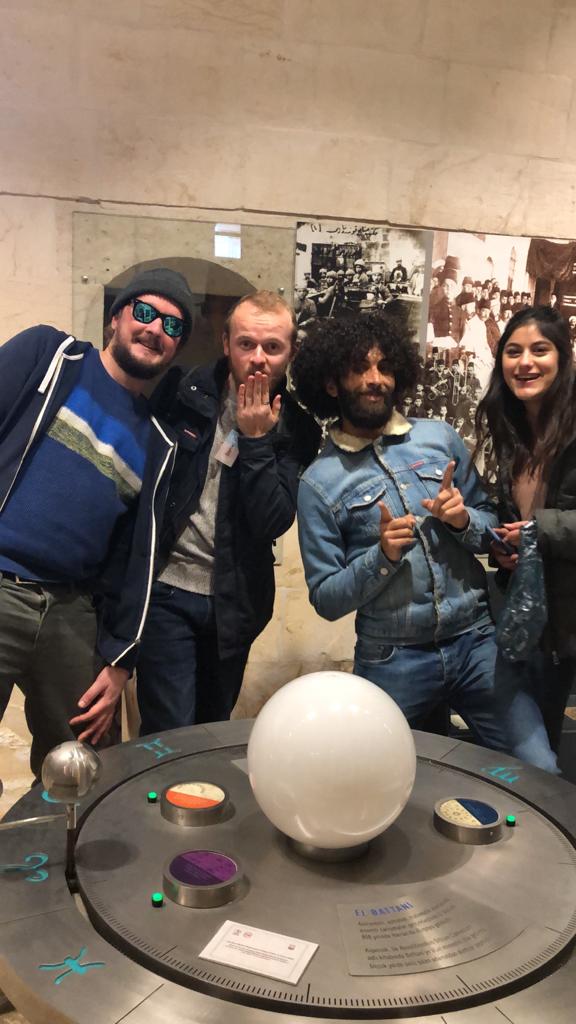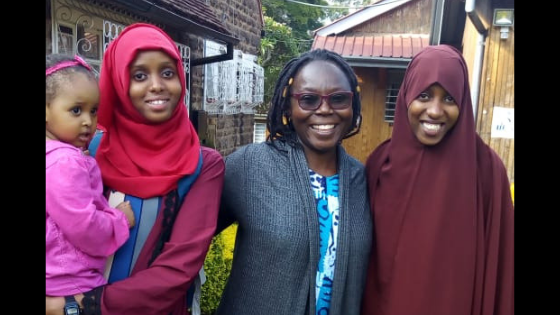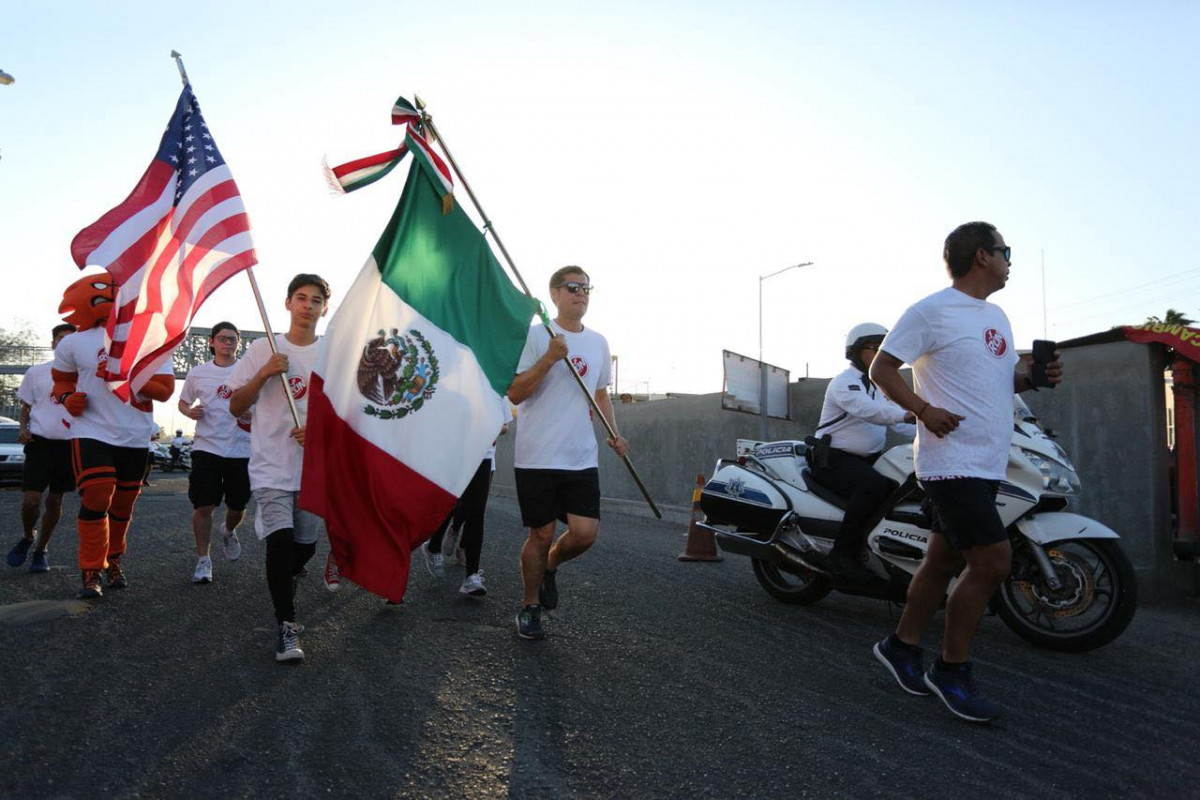
Workshop
Loving beyond the border

By Alexander Simoen
An experience lived by a group of young people from Scotland, Italy, Colombia, Algeria, Belgium, China, and Argentina representing the NGO New Humanity who visited Turkey and spent time with locals and refugees.
We are Danila, Yang Li, Alexander, Alfonso, Amine, Jorge, Daniel, and Valentina – a group of young people from very different countries and backgrounds. What unites us? We are schoolmates at the Sophia University Institute, in Loppiano, a small town located in Tuscany, Italy. Together, and representing the NGO New Humanity, we had the opportunity to go to Turkey to see the country and know more about the reality of refugees and locals.
Turkey is the closest European country to regions of conflict and receives the first waves of refugees. We learned that one of the greatest challenges for the local authorities is to help the Syrian refugees without creating or whilst avoiding tensions with or feelings of deprivation vis-à-vis the local population.
The Turkish culture is very different from European culture. For example, Turkish people give greetings in a different way. The People in Sanliurfa – one of the cities we went to – love to eat, they love especially rice, spicy food, yoghurt, and meat. When you walk in the street, people offer you some food to taste it. Turkish people are very welcoming and always ready to help you and smile to you.
Coming here in Sanliurfa, a city of 2.5 million people – half a million of them are Syrian refugees – gave us the opportunity to have a first-hand impression about the reality of the Turkish reception of refugees. In Europe we often hear of this situation through the media but being here gives us new insights and a better understanding of the context. We got a chance to meet people without any filter. We met officials, went to a school, went to see families, and even hosted some Syrian students in our group.
On these occasions, we learned about how the Turkish State works with the refugees. We saw that children on some occasions have a chance to go to school and that families get help for housing, and even that many people help in registering Syrian people. Considering the scale of the problem, it is clear that there is a lot to do, of course, and that many difficulties remain in giving the best possible reception to the refugees. But it became clear to us that the Turkish government is doing a huge effort to do what it can.
The reality of refugees
Jorge and Amine had the chance to go to an orphanage. They didn’t have many resources, Jorge didn’t speak their same language or cultural background, but we learned that with a hug and our full and heartfelt attention we could really be friends with them. They called us ‘Amu’, which is the Arabic for ‘uncle’. Before leaving, the director of the center and the children asked us if we could come again, insisting that the children need affection and warm contact, especially from men. It was hard for us to leave these children who had easily conquered a place in our hearts.”
Daniel, from Scotland, had the opportunity to meet Syrian refugees who lived the experience of having forcefully to leave their homeland, and he summed up what he learned:
Speaking as a European, immigration and refugees are issues which are highly publicized. I have felt that it has become a normality and so have become somewhat desensitized to the issue. It has also become a hot political topic, and so the discussion lost very much of its human dimension. It is a topic often framed in terms of the negative impact migrants have on the recipient society, and how much financial aid we should send.
This week we had the opportunity to get to know a few refugees who are involved in the project. They shared their experience very openly, and we were able to hear, feel, and see the disorientation caused by losing one’s home, the pain of the separation from their family members, and the uncertainty of their long journeys to find safety in Turkey. We were impressed that each of our new friends felt a strong sense of gratitude for the relative safety and security that they had found in Turkey. Thanks God, they have been able to build new lives in their new city, yet the memories and scars of the war remain.
We also had the opportunity to visit the families of refugees. I visited a mother and her four young children. The father has been missing for 5 years and so the children must work as well as go to school. They had problems with the local kids and now their mother is reluctant to let them play outdoors… They have a house to live in and food to eat, and they echoed the message of gratitude towards Turkey that has accepted them. Yet we saw the poverty first hand, the overwhelming reality of a city of 2 million with 600,000 refugees.
I was struck that even though they seem poor and broken and far from home, when they are together, they are complete. You can see it in the smiles of the siblings who so rely on one another; through this shared trauma they somehow achieve wholeness.
I saw a great dignity in the gratitude this family has for the bare fact that they are still alive and they are together, and their faith of not being alone in their struggle. In that moment, I felt a great poverty in myself and in my culture, because from my point of view, even when you have everything it will never be enough. The gift of perseverance and humility is one I will try to bring home to contrast a culture obsessed with salvation in the form of material things. This is not to say that aid is not a real gift, but that humanity finds it achievement in mutual caring and love.
Official institutions welcoming Turkish refugees
Regarding the meetings with officials of the public administration with whom we talked directly about the institutional processes of welcoming the Syrian refugee population in the Turkish territory, we have seen a great transparency on the part of the official institutions, and we even had access to restricted areas. Although most of the process involves the registration of people and their integration into the social and labor system, the words that we heard the most were ‘empathy’ and ‘dignity’. It was encouraging and gave us hope to hear the mayor of Sanliurfa talking about helping and welcoming the Syrian refugees out of love.
The cultural and religious sphere influence the administrative and political dimension and, in this case, it gives a strong emphasis on empathy in the work of listening to the stories of victims, in order to dignify them and welcome them “because in their face, there is the face of Allah (God)”. So we found in this experience with the officials a message for State officials in other parts of the world, focusing on empathy with the stories of the others and acknowledging them – “taninma” as they call it – in the aim of helping everyone effectively.
We learned how important it is to look at the situation from the perspective of the Turkish society: 20% of the inhabitants of Sanliurfa are refugees. We learned that many actions are being undertaken, but of course more might be done beyond material support, e.g. in the field of training and follow-up.
